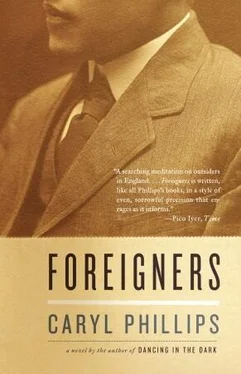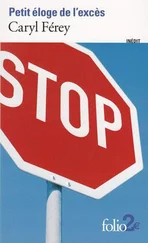Later that same day the ailing Dr Johnson received a visit from a Miss Morris, who was the child of a friend of his. The young woman's unexpected arrival alarmed Francis, but he escorted her from the street door up the stairs to Dr Johnson's chamber, where he asked her to wait. He entered and informed his master that a young woman was here who claimed to be the daughter of a friend, and that she had asked permission to see him so that she might receive his blessings. Dr Johnson smiled weakly, which his negro servant took as a sign that he should usher this Miss Morris into the room, which he did. The doctor turned in the bed and looked carefully at the girl before pronouncing, 'God bless you, my dear.' With this said he turned away and Francis marshalled Miss Morris from the room. Soon after, Francis, together with Mrs Desmoulins, returned to Dr Johnson's chamber where they both realised that the doctor's breathing had become even more laboured, but there was nothing that they could do to alleviate his discomfort. Shortly after seven o'clock in the evening, both Francis and Mrs Desmoulins noticed that the painful breathing had ceased and so they quickly left their respective chairs and went to the bed where they discovered that the great Englishman was dead.
The woman poured her visitor more tea and then coughed loudly without resorting to covering her mouth. It was clear that, in common with her husband's late master, this woman had no passion for clean linen or immersing herself in cold water. The story of her time in Lichfield with her negro husband was now clearly uppermost in her mind, but it was apparent that this was not a joyful tale. If, as seemed to be the case, Francis Barber was still alive then what I most desired was an introduction to the man so that I might discover for myself why fortune had not smiled upon him since the death of his master. It was an indisputable fact that Dr Johnson had provided handsomely for Francis, although Sir John Hawkins, among many others, had complained loudly of the imprudence of Dr Johnson leaving money to a negro. If the rumours of Barber's fall from grace, and his foolishly squandering the assets bequeathed to him, and thereby betraying the generosity of England's greatest literary mind, proved to be true then this would serve only to confirm Hawkins' estimation of Dr Johnson's folly.
The woman coughed.
'Lichfield has turned out to be a disappointment for me and for Frank, but I expect you can see that, right?'
I said nothing but again I looked at the squalor that surrounded me.
'After a couple of years trying to make a living in London, we came up here to Lichfield. Then we discovered that my Frank had borrowed so much money from Mr Hawkins that not only was the annuity no more, but Frank was told that the sum of money that provided for it was all spent. Mr Hawkins claimed to have settled his account with my Frank. My husband's health was never that good, then we had difficulties with the children. It was hard to find anybody who would give us work or even welcome us. Three years ago we moved out here to Burntwood, and we used the last of the money to buy this cottage, but Frank's sadness drove him to drink more and so we had to start to let go of the doctor's pieces. We don't have anything left. My Frank, he used to take pleasure in a spot of fishing or cultivating a few potatoes, but even that's gone now and look where he's landed. The Stafford Infirmary, which isn't a place for a decent man.'
Again the woman coughed, and I deemed it an appropriate moment to ask the question that was now sitting somewhat impatiently on my tongue.
'Would it be possible for me to see your husband?' Mrs Barber looked blankly at me, but said nothing. I continued in my efforts to engage the uncultured creature. 'I understand that Mr Barber's health may not be perfect, but an audience, however brief, would assist me greatly with my biographical sketch.' I paused, unsure whether the dull woman was sensible of my words. 'I would appreciate your assistance, if at all possible.'
After what appeared to be an age, the woman nodded briefly and said she would conduct me to the infirmary, but she asked if first it might interest me to see the schoolroom. Clearly this is what she desired, and so I rose to my feet and followed both her and the mongrel through a plain door and into a darkened room. Books and papers were strewn all about, but it was unclear exactly how many pupils still considered this to be a place of learning that they might visit on a daily basis. Mrs Barber drew back the curtains to let a little light into the room, but the illumination served only to highlight the squalor of the place. Just as I was beginning to feel that precious time was being wasted on this gloomy ruin, the child began to cry. Gathering the gamine about her skirt, Mrs Barber announced that it was some months now since her Frank had been forced by ill-health to abandon teaching, but she attempted to attend to those pupils who still wished to learn, although she did confess that her own learning was somewhat rudimentary. As we made ready to leave, I cast my eyes around the dismal chamber and concluded that this place had probably not been used as a schoolroom, or as anything else, for the greater part of a year, and the morose English woman's claims to be, in the absence of her husband, a replacement teacher of some description were undoubtedly exaggerated.
I soon discovered the Stafford Workhouse Infirmary to be a place of great misery, as opposed to a haven of rest and recovery for those who were temporarily ailing. As the carriage came slowly to a halt by the tall oak doors, I noticed that the infirmary boasted a stony black façade, and the grounds all about were entirely treeless, which created a most despondent atmosphere. Mrs Barber and her child led the way into the vaulted interior, and they moved quickly along a seemingly endless corridor as though hurrying to an appointment. Then the grey-haired woman stopped outside of a rough-hewn door that was partially ajar, but through which I was able to spy a long row of tightly packed and fully occupied beds.
'Frank's in there at the end. The last bed but one. We can wait here until you've finished your talking with him.'
I was somewhat surprised by Betsy Barber's reluctance to enter the cheerless chamber and introduce me to her husband, but I imagined that perhaps there was some rift between them that I was not sensible of. Or perhaps she was simply fearful of once again encountering her husband in such a pitiful situation. On entering the miserable place, I decided that it was quite probably the latter reason, for I could not imagine any wife who would be content to gaze upon a loved one who had been reduced to such lamentable circumstances. Most of the patients appeared to be quietly suffering from grave maladies that would soon carry them off, while one or two thrashed about as though trying to free themselves from imaginary leashes, and as they gyrated they howled like beasts. I could see no sign of a physician, but I was soon accosted by an attendant who offered me a sponge soaked in vinegar which I immediately pressed to my nostrils for protection. Thereafter, I made my way to the bed as directed and was somewhat alarmed to see the tortuously aged face of a man I had not seen for sixteen years. Blacky's eyes were fastened tightly shut, but once I sat on the edge of the cot — there being no other place for me to deposit myself — he soon opened his peepers and stared up at me as though unable to properly discern with whom he had an audience.
'Do you remember me, Mr Barber?' As soon as I asked this question I felt foolish, for why should the negro commit to memory knowledge of a man he had not encountered for nearly two decades? It was a somewhat presumptuous enquiry on my part and I regretted that I had allowed it to pass my lips, but to his great credit Francis Barber did not seem at all troubled by my impertinence.
Читать дальше











![Unknown - [Carly Phillips] The Bachelor (The Chandler Brothe(Bookos.org) (1)](/books/174132/unknown-carly-phillips-the-bachelor-the-chandle-thumb.webp)
